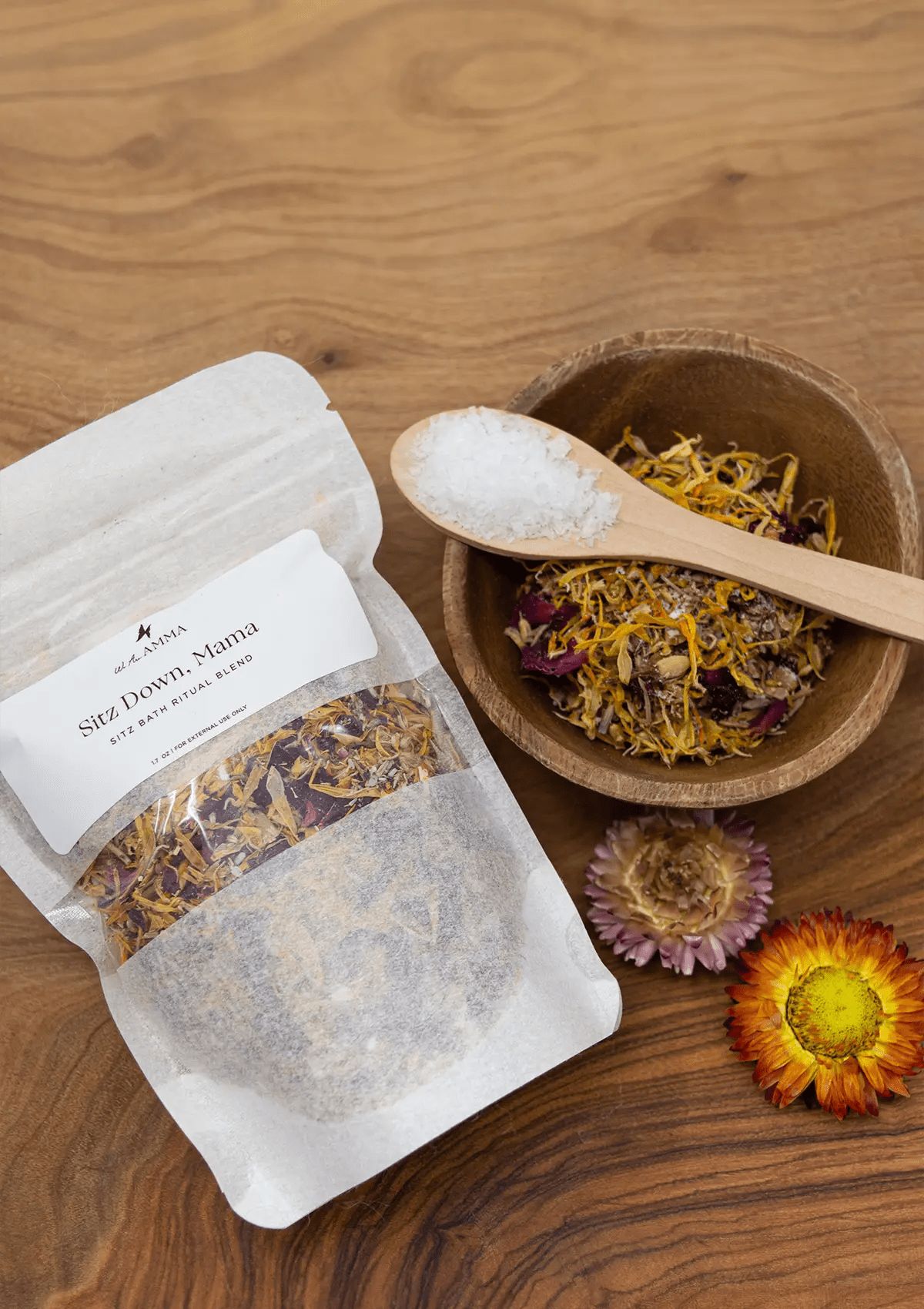
A Better fourth trimester: Tips for your first "40 days"
Just when you think you've reached the finish line...you'll discover there's a "fourth trimester."
Doula to the stars Ivy Joeva shares her wisdom on the 4th Trimester and tricks to optimize your postpartum experience. 💕
“If mom is able to do this, I've seen mothers make a full recovery from birth within these first 40 days—hormone levels optimize, pelvic and core tone is restored, the body naturally sheds pregnancy weight because mom's digestion and metabolism are optimized, energy levels are sustained, mom experiences healthy mood, and libido returns. In cases where mom is overextended and unsupported, I've seen it take a full 2 years to fully recover from the birth of a child. So consider this time an investment in mom's well being, baby's well being, and the health and happiness of the whole family!”
— Ivy Joeva, doula
Recommended reading:
- We love these 2 books:
Nourishment
- Breastfeeding requires an additional 500 calories a day.
- Now is not the time to try to lose weight by restricting calories or complex carbohydrates.
- These are essential to sustaining energy levels, supporting hormonal health and balancing mood.
- Nutrition in general is a major tool in mitigating perinatal mood and anxiety disorders (PMADs), so eat and eat well!
- Digestion can be challenging.
- It's helpful to favor warm, moist, oily foods that are easy to digest.
- Nothing too spicy that could aggravate a sensitive stomach.
- Warming spices that aid digestion like cinnamon, turmeric and ginger are good.
- The reason for “oily” foods is threefold: healthy fats support hormone production, increase quality of breastmilk, and also protect mom’s brain health during the postpartum time (which can be compromised when so much nutrition is being diverted to feeding baby). So essential fatty acids are also crucial for preventing postpartum depletion syndrome and PMADs.
- A few great dietary choices are cold-water fatty fish, flaxseeds, chia seeds, and walnuts.
- Cooked root veggies (carrots, parsnips, yams, etc.) and whole grains like millet and oatmeal are easy to digest and help naturally boost serotonin levels (see, we told you nutrition is vital to postpartum mental health).
- Oatmeal is also a natural "galactogogue” -- meaning it boosts milk supply! These lactation cookies with oats, brewer's yeast, and flaxseed are delish (and mama-made)!
- Hydrate. Keep a large reusable water bottle next to you at all times...a great way for your partner to provide support is by refilling it for you! If you get bored with plain water, add a flavorful tea bag or infuse with fruit of your choice (a personal fave is cucumber and lemon).
Supplies:
- Pamper your vagina:
- Sitz baths / Herbal Soak
- Cooling Herbal Mist for Postpartum Vaginal Care
- Over-the-Toilet Perineal Soaking Bath
- Frozen witch hazel pads -- your partner can make these for you!
- Nipple butter...you'll need it.
- Nursing pillow — will save your shoulders and back from the “nursing hunch!”
- Belly oil — postpartum skin can be crazy itchy, and belly oil also helps retain your skin’s elasticity with hormonal changes.
- Belly binder — can help with repairing diastasis recti and provide extra support for healing c-section mamas.
- Puppy pads — lochia is no joke, and you probably want to keep your furniture nice 😉
Pass on playing "hostess".
- You don’t owe anybody anything when it comes to you or your new baby...not your company, not your time, not the privilege of holding your newborn. Nothing. You are building a new family unit and that bond is the ultimate priority.
- If you’re doing a meal train, you can put a note on your door asking participants to leave meals in a designated cooler on the porch (see: you don’t owe anyone your company). Plus it prevents people from knocking or ringing the doorbell when you and/or babe might be catching precious sleep. Your note can thank potential guests for respecting family bonding time and privacy.
- If you do decide to have visitors, post a list on the fridge of tasks they can help with so they don’t stay baby-focused (make mom some lunch, do a load of laundry, do dishes, etc.) Family and friends will most likely be grateful for the guidance and want to help!
Delegate & Rest.
- While everyone's needs are unique and it's important to trust your intuition and instinct, it’s recommended that for the first "40 days" or at least 6 weeks postpartum (8 weeks in the case of caesarean birth), mom do nothing but rest, sleep, feed herself, and feed baby. To prevent potential prolapse and help the core gradually regain tone, avoid lifting anything heavier than baby.
-
Hire a postpartum doula if you can -- it’s invaluable to have someone around whose sole focus is taking care of mama/new family unit and has substantial evidence-based knowledge to draw from.
-
Immediately after birth, try to do the following:
-
3 days “in” the bed (mostly resting/ sleeping)
-
3 days “on” the bed (can sit and read, etc. once swelling has reduced and it’s comfortable to sit up — still helpful to use a donut pillow)
-
3 days “around” the bed (mostly in and on the bed, but can putter around if it feels good)

































